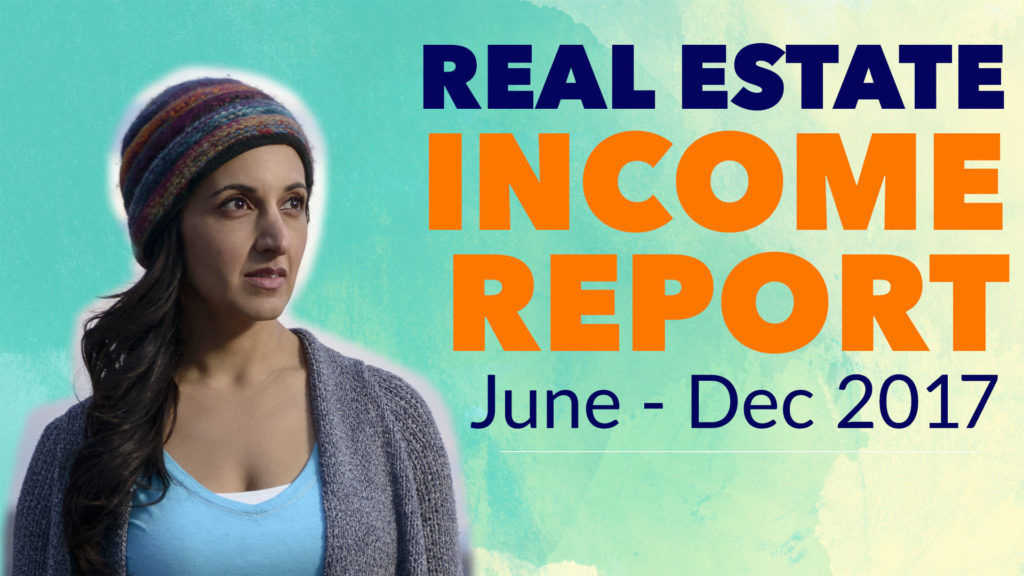Hey! I know you love numbers, so I’ll cut to the chase:
Last year, our rental properties earned $125,618.49 in gross income.
After expenses (including the mortgages), the properties netted $43,211.67.
This is our passive income from real estate in 2017. It’s the cash flow the properties put in our pocket last year.
And this is how we’ve reached financial independence through real estate.
This is not our only income. We both make money in many other ways (including from this website, the podcast, and the YouTube channel itself.)
But we know that we could do nothing — we could lay on the couch eating Cheetos in our underwear for a solid year — and this passive income would still appear in our bank accounts.
Thanks to this passive income, we have freedom from needing to work.
We’re a young, healthy couple with no debt except our mortgages. We live in a low-cost-of-living area with no state income tax. We don’t have fancy tastes.
We can breathe a sigh of relief, knowing we have a foundation of $43,000 in passive income.
And that influences the decisions we make, such as:
- “Should I accept this weird, wacky, wouldn’t-recommend-it-to-my-grandma company as a podcast sponsor?” (No. I walk away from plenty of offers.)
- “Should I choke this website with ugly banner ads?” (No. I wouldn’t do that to you.)
- “Can I spend the next three weeks traveling in South America?” (Yes. Because why not?)
It’s easier for me to talk about the properties than to write about them, so I made two YouTube videos.
The first video is a 2017 Year-in-Review. (Yes, I realize I’m releasing this in April 2018. Better late than never.) This describes the passive income from the rental properties, as a whole, across last year.
It’s 7 minutes long, and perfect for understanding the big-picture highlight reel.
(You can watch it at 1.5x or 2x speed, if you prefer. Click on the “settings” icon at the bottom-right corner of the YouTube video to adjust the speed.)
The second video gives a detailed, month-by-month breakdown of the income and expenses for the rental properties from June through December. It’s perfect for a getting a deep details-and-numbers perspective into our rental properties last year.
(And again, you can watch it at 1.5x or 2x, if that’s your style.)
I also have videos here and here that cover a detailed breakdown of the first five months of 2017.
… And this means you get a backstage, behind-the-scenes look at the EXACT numbers inside of our rental property investments.
How much did we make? Spend? Keep as passive cash flow?
Did we experience months that went deep into the red? (Spoiler alert: yes, and big-time! Watch the June-December video for the gory details.)
New to this community? If you have background questions about the rental properties, such as:
- How many properties do you own?
- How much did they cost?
- How much are they worth today?
… you can find all the answers in this ultra-comprehensive Real Estate FAQ HQ.
Thanks and enjoy!
